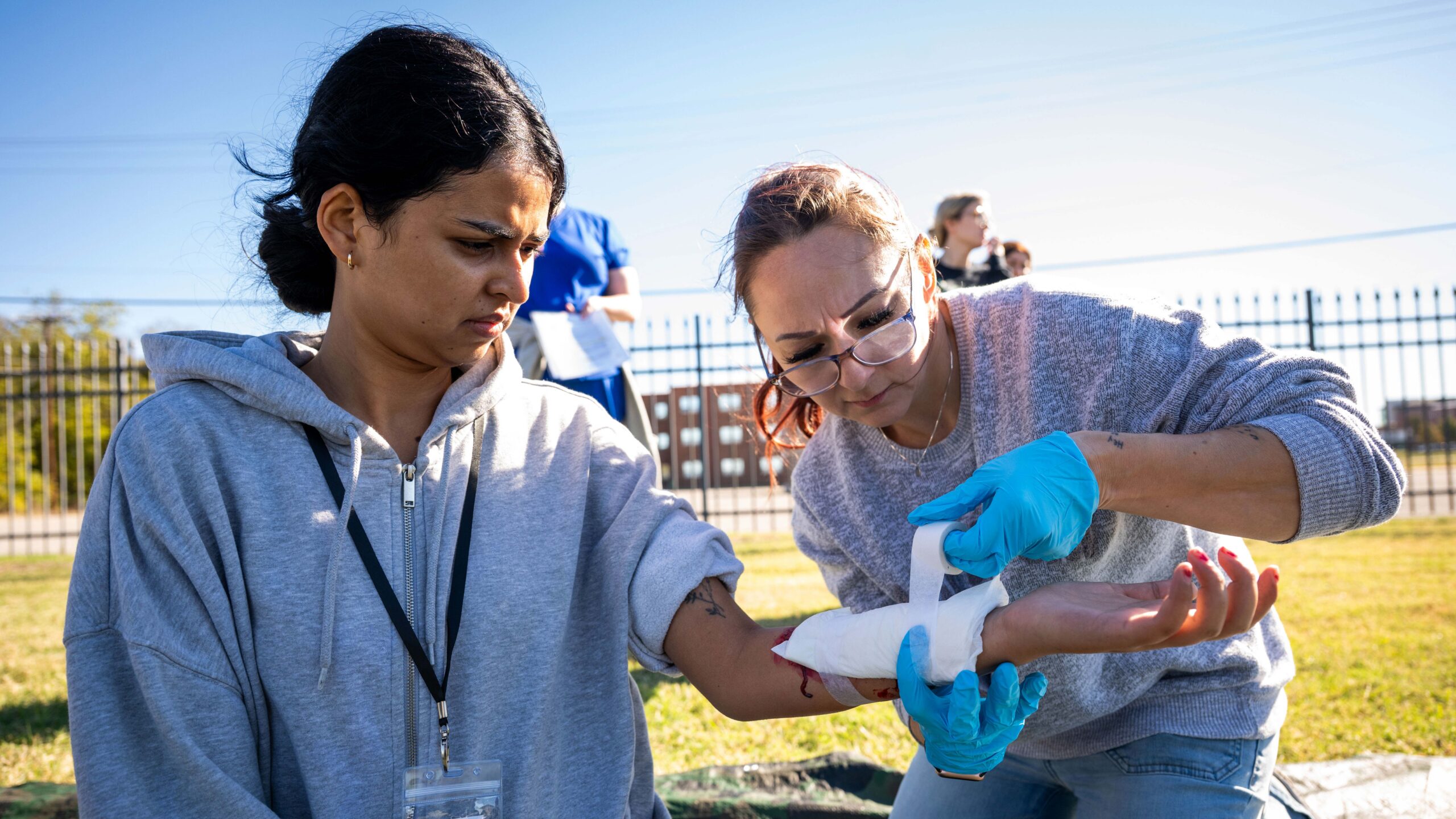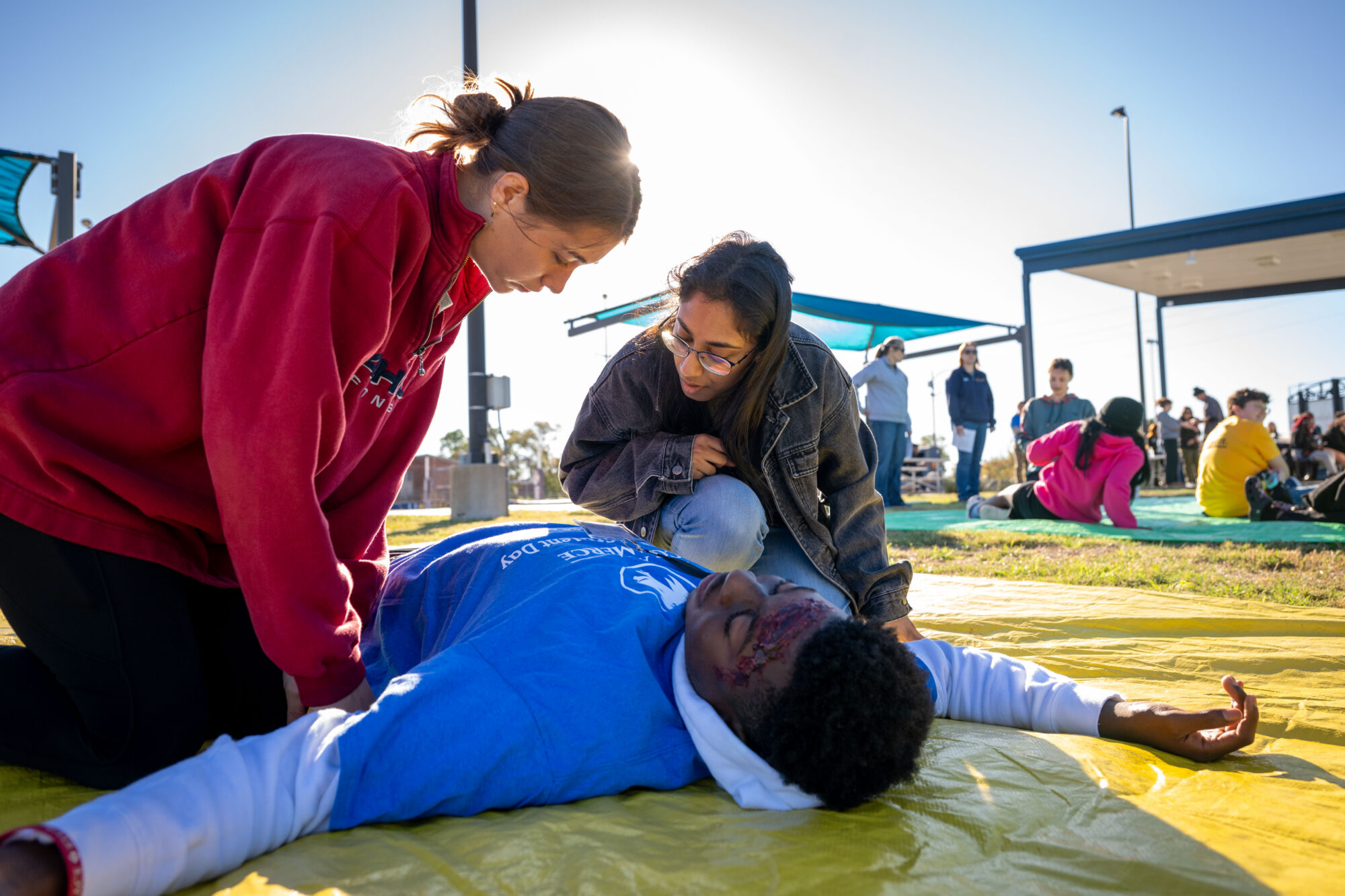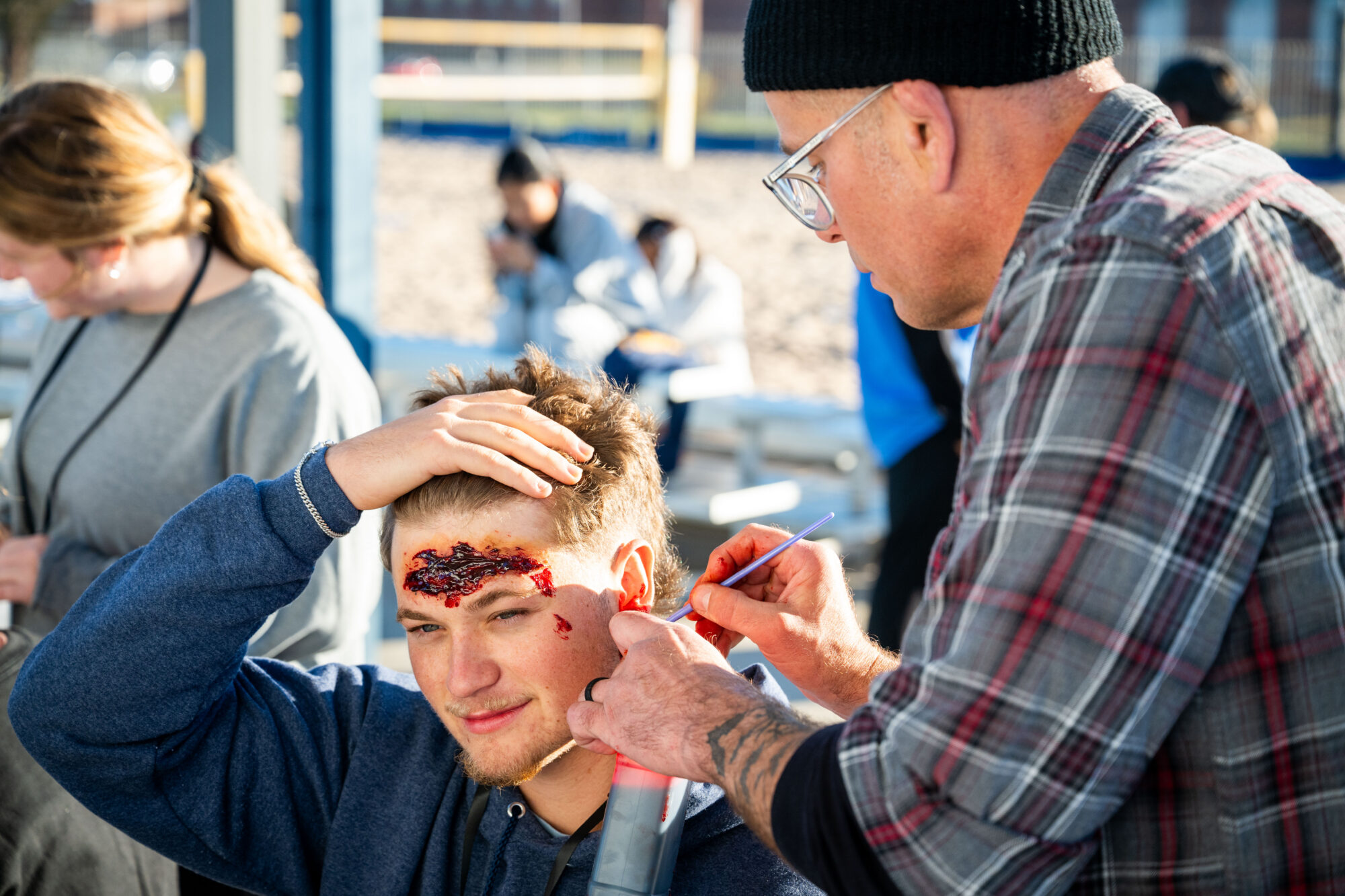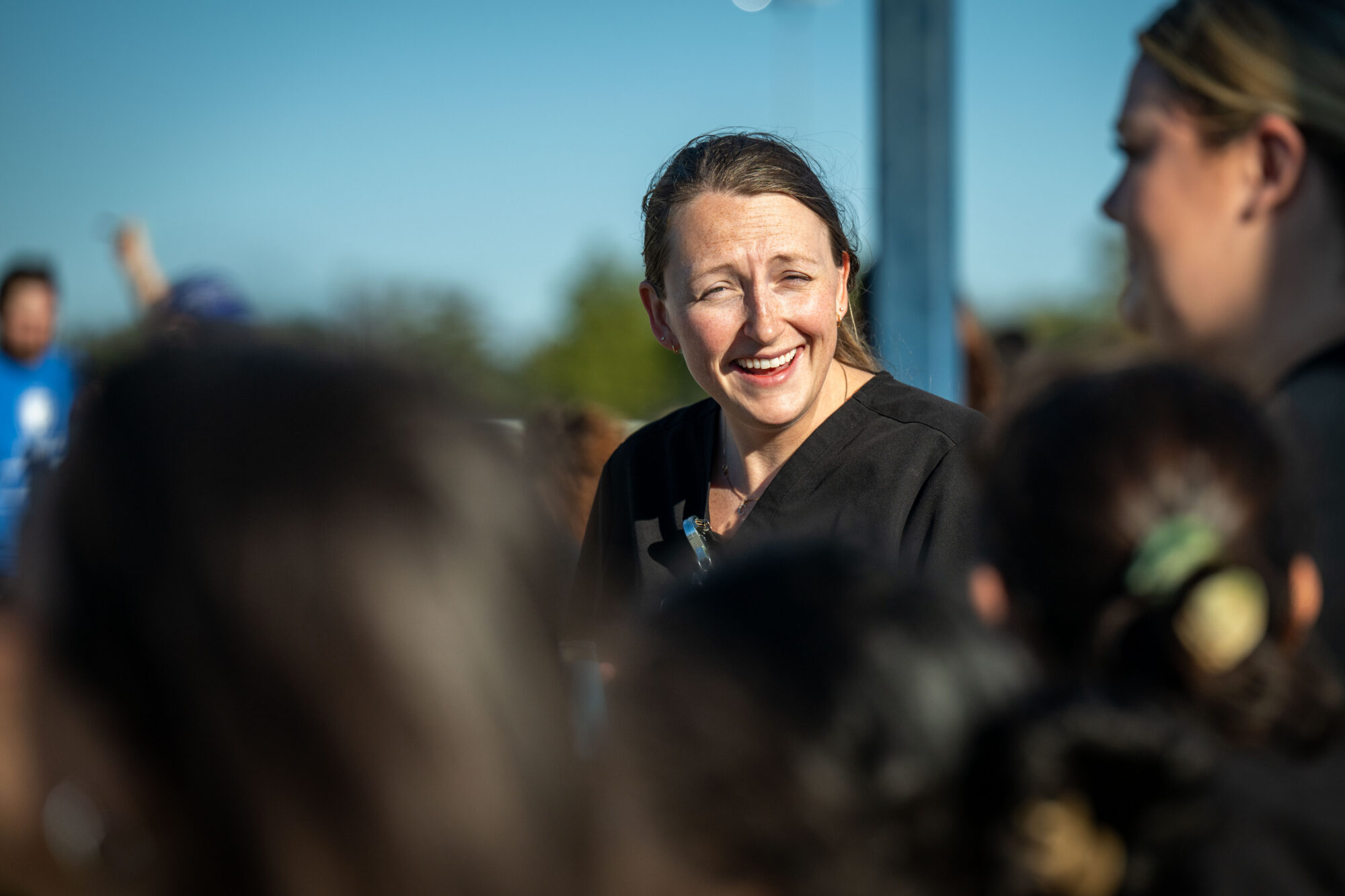
East Texas A&M Nursing Students Take Charge in Realistic Mass Casualty Simulation
On November 5, East Texas A&M had a chainsaw accident, a car crash, a tornado, and a bombing—all before lunch. Fortunately, it was only practice.
As part of their Rural and Community Health Nursing (NURS 4560) course, senior nursing students participated in a mass casualty simulation designed to test their clinical decision-making, leadership and communication skills in high-pressure environments.

The event, held each semester and organized by Simulation Lab Coordinator Kevin Green, transforms part of campus into a mock disaster zone. Students from the Department of Health and Human Performance acted as victims, complete with realistic injuries and stage blood applied by Michael Knight and Donna Deverell, both faculty members from the Department of Theatre.

“Participating in a mass casualty simulation provides nursing students with invaluable real-life experience in disaster management, triage, and teamwork within a high-pressure environment,” said Courtney Kissling, instructor of NURS 4560. “These exercises bridge the gap between theoretical knowledge and the complex realities nurses face in practice.”
Instructors observed as students triaged victims, prioritized interventions, and worked together to manage simulated emergencies ranging from chainsaw injuries to bombing scenes. The scenarios, though staged, required quick thinking and collaboration with limited resources, mirroring the unpredictability of real-world crises.
“Although many nursing students will work primarily in hospital settings, they must also be prepared for situations where they may be the first to respond at the scene of an accident or unexpected disaster,” Kissling said. “Developing the confidence to act swiftly and effectively with whatever resources are available is essential.”

For the soon-to-graduate nursing students, the simulation was more than an assignment—it was a chance to step into their future roles. The laughter, fake blood and adrenaline all served one goal: preparing them to save lives when it truly matters.
For more information about the nursing programs offered at East Texas A&M, visit the School of Nursing webpage.



